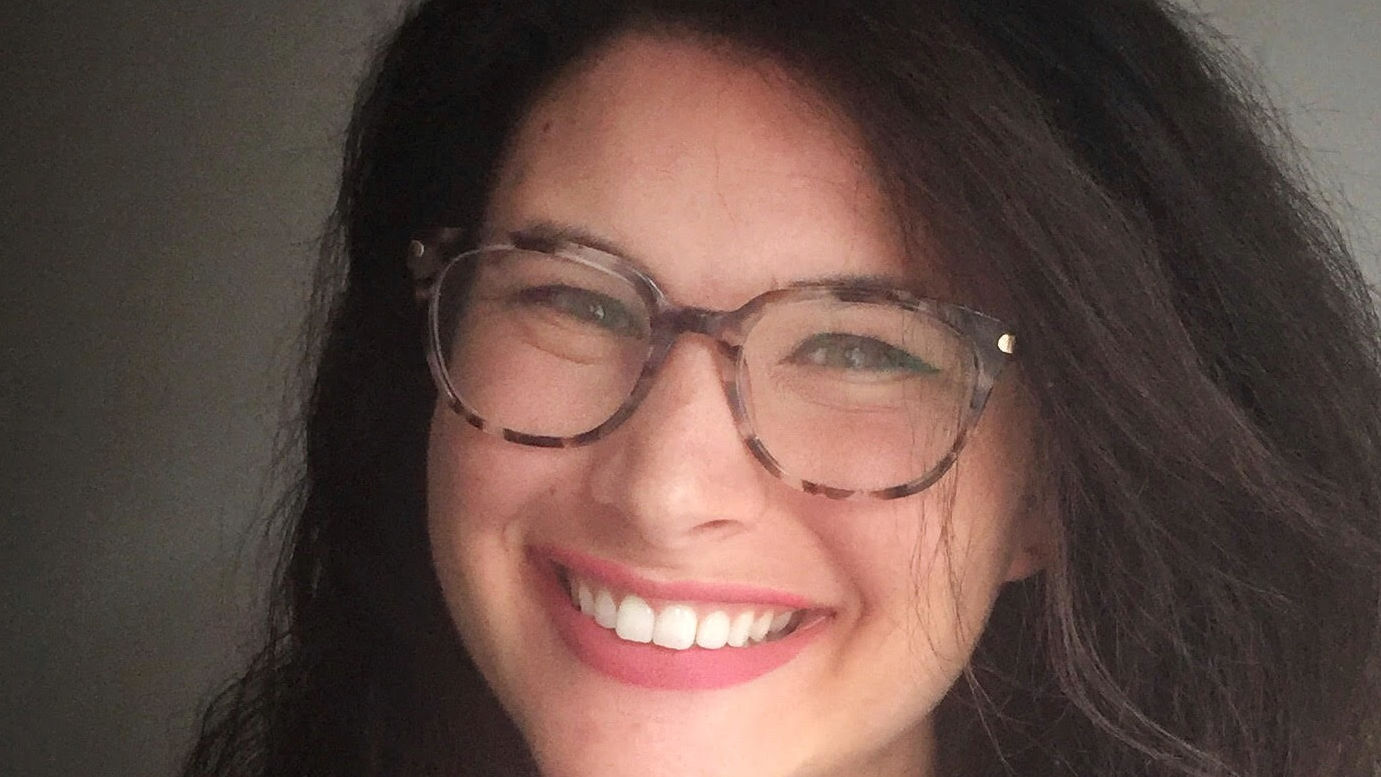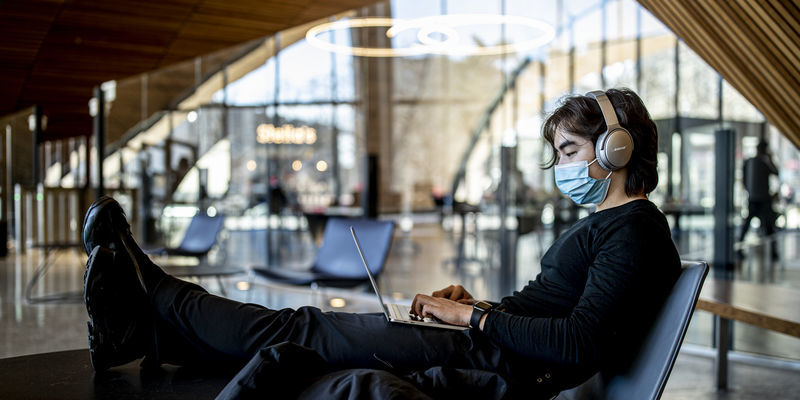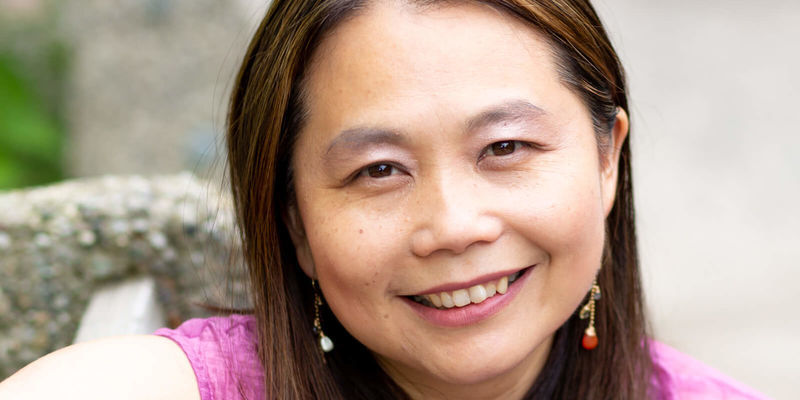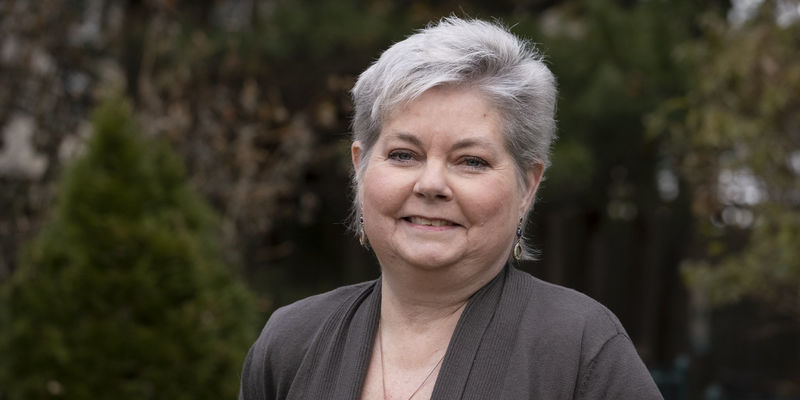That time of the month: The harm of menstrual inequity and not talking openly about your period
Jeni Stolow, a social and behavioral scientist and an assistant professor of instruction in the College of Public Health, explains the dangers of menstrual inequity.

Many of us avoid talking about our periods. And this reluctance to speak openly about menstruation, it turns out, is a danger to public health. Menstrual inequity—the unequal access to menstrual products, education and reproductive care—often goes unaddressed because of this reluctance, as well as a lack of awareness and education about the problem.
We spoke with Jeni Stolow—an assistant professor of instruction in the College of Public Health who is moderating Temple University Libraries’ Stopping the Cycle of Menstrual Inequity event—about the dangers of this issue.
Temple Now: How would you define menstrual inequity?
Jeni Stolow: It can be this wide range of issues related to gender discrimination; gender-segregated resources; or just this overall issue with access, affordability and education about menstruation. Menstrual inequity can spread across topics such as global development, period poverty and the pink tax.
TN: What are the causes and effects of menstrual inequity?
JS: This systemic, intergenerational removal of dignity is the root cause that makes [menstrual inequity] still hushed about. The effects are that people with female bodies grow up putting sanitary products in their sleeves to go the bathroom because they’re ashamed of having a period, that they learn to hide their health needs, that the number one reason girls miss school is because of their period and that this natural part of health is going widely unaddressed in our educational systems. In some areas, 70% of reproductive and physical health issues that can lead to death, toxic overdose or maternal mortality stem from unsafe menstrual practices. On average, 1 out of 5 underserved females will have to go without sanitary products because they can’t afford them.
People have learned that menstruating individuals for one week of every month are lesser, incompetent and dirty—this is also a mental health issue.
You hop on Zoom and can say, “I have COVID,” “I have a cold,” or “I have a terrible headache,” but you can’t say, “My uterine lining is shedding.”
When we don’t talk about it, we don’t educate about it, which can cause lifelong problems. You might not know if you are healthy, have a health issue, or have a health need.
TN: What is the significance of this issue?
JS: Mismanaging hygiene during your period can cause so much physical as well as financial harm. It can be expensive, especially if you’re taught not to prioritize this need. If you’re using toilet paper or bleeding through your clothes, are you buying new clothes? That’s a privilege people don’t have. Do you have something to tie around your waist or backup clothes at school or work? Do you have products you can change regularly enough to meet your variety or needs?
If we’re not managing our hygenic needs during this time, dermatological issues, for example, can increase susceptibility to sexually transmitted diseases and cause urinary tract infections, fertility issues and possible death among pregnant women.
When the first female astronaut went to space, she received 100 tampons for one period, and NASA asked, “Is that enough?” I would love that approach to be used—this overcautious idea of “do you have everything you need?”
Being in an environment where you don’t feel comfortable talking about your hygiene needs can cause problems accessing materials. If you’re uncomfortable asking your male boss or father to get you tampons, what is that going to do for you and those around you with similar needs? Women have learned not to advocate and that it’s women’s obligation to deal with this, but it’s not; it’s a societal issue.
TN: Why is menstrual inequity prevalent in North Philadelphia?
JS: Wherever there is systemic and policy inequity and access disparity—where there are pockets of poverty—there is menstrual inequity. A big part of the learned behavior of surviving poverty is putting stronger needs above your period.
In North Philadelphia, substance use, obesity and other visible issues are prioritized, but what we’re forced to hide—such as menstruation—falls to the side because issues like this aren’t visible to funders, policymakers and nonprofits.
TN: How can the Temple community increase awareness and action to combat menstrual inequity on campus and in North Philadelphia?
JS: Think about how you can create more inclusive environments on campus to meet all different needs. Talk to your department chairs about having a safe space where various sanitary products can exist and be replenished. All professors and students should know where these things are. Anyone reading this, if you need a tampon or pad, come to my office. I’ve got snacks too.
If you can knock on someone’s door and say, “Hi, do you have a Band-Aid,” you should be able to say, “Hi, I don’t want to skip class because I’m about to bleed through three layers of clothing. Do you have a tampon?” These are the realities of our students, staff and faculty.
TN: Where can people donate?
JS: Reach out to the organizations in Philadelphia. They’re going to love to hear from you. Also, think about religious organizations, shelters, food kitchens, nonprofits and halfway houses.
Donate supplies to Temple’s Cherry Pantry and think about how you can create other opportunities.
I have my students list emergency supplies for disease outbreaks and natural disasters. If you don’t have menstrual hygiene products in these situations, you’re part of the problem. You’re probably not going to use your batteries, but someone is probably going to need a tampon.


